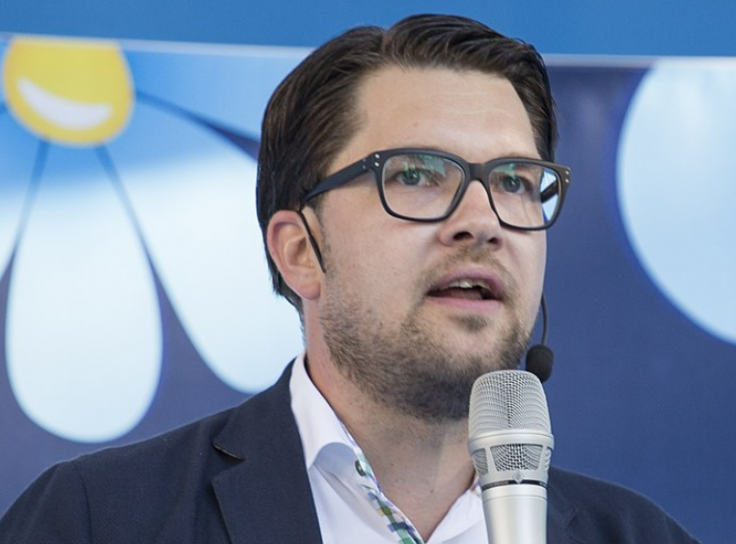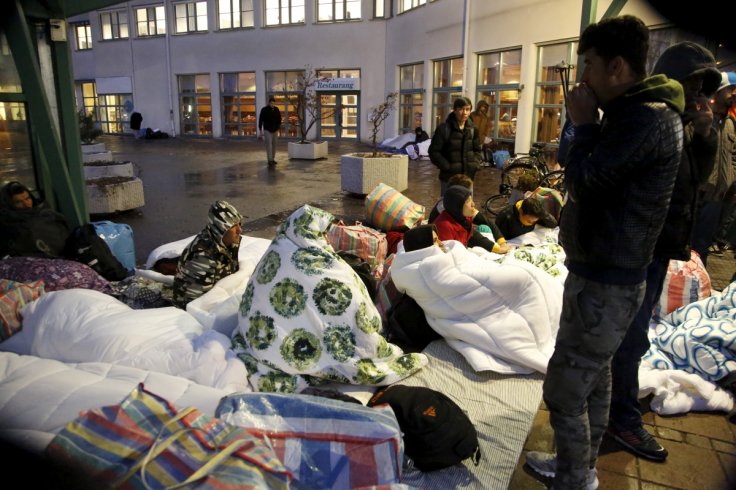The right-wing alliance has likely defeated the ruling centre-left bloc headed by Prime Minister Magdalena Andersson in Sweden. One of the key partners in the conservative bloc is the far right Sweden Democrats party which espouses stringent anti-immigrant stance.
The final tally of results won't be available until Wednesday as the election is too close to call. With more than 90 percent of the votes counted, the right-wing alliance has won 176 seats in the 349-member parliament, with Prime Minister Andersson's centre-left alliance winning 173 seats.
Andersson's Social Democrats won 30.5 percent of votes to remain the largest party in the parliament, while Sweden Democrats won 21 percent, posting its best ever result. The Moderates party, which leads the Conservative alliance, got an impressive 19 percent of votes.

It's not yet clear who will form the government but this year's Swedish election will be known for the historic gains made by the right-wing, especially the far-right Sweden Democrats. Its leader, Jimmie Åkesson, made it clear that his party's ambition is to be in the government. "Our goal is to sit in government. Our goal is a majority government. It's looking pretty damn good now," he said.
The Sweden Democrats were looked down upon as a pariah by mainstream political parties in Sweden until three years ago, when the centre-right Moderates party invited it to be part of the alliance. However, the tacit understanding was that SD will not be allowed in the government, if the alliance wins the election.
This can change now, as the Sweden Democrats have become the second largest party in the country, edging its bigger coalition partner Moderates to the second place. "We are so big now ... it is clear we should have a spot on parliamentary committees", party secretary Richard Jomshof said, according to the Guardian. He said other parties cannot 'freeze out' the Sweden Democrats again.
Who is Jimmie Åkesson?
Åkesson was a member of the Moderates party in his teenage years but he joined the much smaller but more ideologically driven Sweden Democrats in the 1990s. In 2005 he became the leader of SD. When Åkesson took the leadership of the party its average poll numbers were around one percent.
Åkesson led the party as it made a bumpy ride to the top layer of Swedish politics. Sweden Democrats took shape during the 90's when Sweden saw the emergence of the neo-Nazi movement. The party was know for its racist and extreme views and its motto was to keep Sweden Swedish.
Steady Growth
Under Åkesson's leadership SD started dissociating with the extremist views while recording larger electoral success over the years. The party got 5.7 percent of votes and won seats in the parliament for the first time in 2010. In 2014 it increased the vote share to 12.9 percent, and the vote percentage went up to 17.5 percent in 2018.
SD's electoral showing kept improving even as Sweden witnessed a higher rate of immigration in the last couple of decades. Sweden's liberal policies and humanitarian approach to asylum seekers saw more than half-a-million refugees entering the country in the last decade alone.
Immigration and Rising Crime
Åkesson, who left Lund University without a degree, comes across as a regular Swede with no trappings of intellectual pretensions. His core electoral constituency is the working class men, who hold strong views against rampant immigration and the runway crime rates.
The 43-year-old has said during election campaign that his success lies in the fact that other parties are not addressing the issues of the influx of asylum seekers and crime, as well as the relationship between these two factors.
"I think (our success) can be explained by the fact that people don't think the other parties take their problems seriously", he told AFP, according to Sweden's The Local.
In 2012, Sweden Democrats said it was adopting a policy of 'zero tolerance' against racism even as it tried to shake off connections to its neo-Nazi roots.

"Immigration is the reason they exist in the first place ... The anti-immigration message is a given by now. They want less immigration and more repatriation. But they've also shifted the focus to integration failures, and that's where they tie in law and order to immigration," said Pontus Odmalm, a politics professor at the University of Edinburgh, according to Euro News.
However, Åkesson built his party on the anti-immigrant, anti-Muslim plank. He had once said Muslims were "the biggest foreign threat since World War II", according to The Local.
While the party says it is stepping back from extremism, it kept garnering votes both from the left-wing and the right wing, underscoring the Åkesson's ability to connect with the fluid socio-political landscape of Sweden.
Even in the run-up to this year's election, Sweden Democrats played up its anti-immigrant stance. One of the campaign pieces of the party was a metro train named the 'repatriation express,' suggesting that it supported throwing out the immigrants. "Welcome aboard with a one-way ticket. Next stop, Kabul," a tweet by the party's legal spokesperson read.

The rampant crime rates in pockets of the country, where the immigrant population is higher, was another campaign theme adopted by the party.
By tying crime and immigration together and positing them as the central threats to Nordic lifestyle, Åkesson and his party have been able to bring highly radical thought patterns to Swedish mainstream, while still disavowing extremism and racism.
Mainstreaming Radical Thoughts
Swedish political expert Dominic Hinde, who teaches at the University of Glasgow, cites an example. He told Euro News that it was common for senior Sweden Democrats leaders to canvass for votes during this election by "openly criticising Islam, and the perceived threat of Islamification of the Nordic nation." The stratospheric rise of SD in a short span of time shows that it has been fairly successful in communicating the idea that runaway immigration and the social stress were responsible for most of Sweden's socio-economic problems.
"It would have been unthinkable for this to happen ten years ago, even, for someone [whose party is] polling 20% to stand openly on a public square, in an election campaign, and get a round of applause from the public," Hinde said.
"So although the Sweden Democrats are maybe not as extreme as they have been in the past, as they have moderated themselves they've also been able to bring new people on board, and to introduce some fairly radical right streams of thought into the mainstream discourse," he added.









